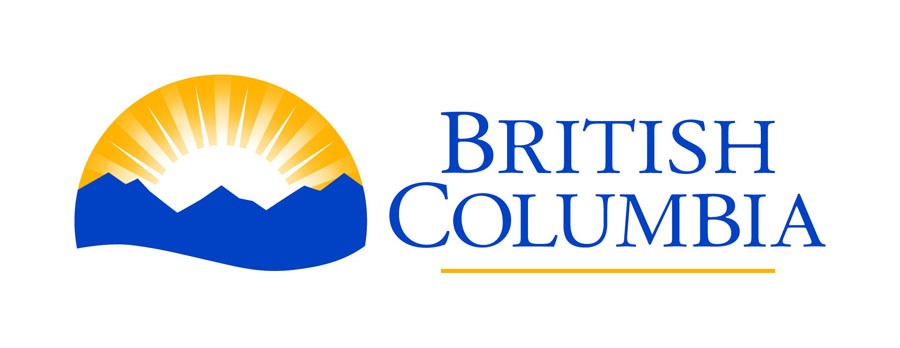VICTORIA - Indigenous students at public post-secondary institutions throughout British Columbia will have more support to succeed in post-secondary education and finish their studies.
"We're investing in the future of Indigenous students throughout British Columbia," said Melanie Mark, Minister of Advanced Education, Skills and Training. "We are committed to ensuring Indigenous learners have greater access to post-secondary education and training, and cultural supports to succeed in their educational goals. I'm proud to be part of a government that is responding to the Truth and Reconciliation Commission's Calls to Action by empowering Indigenous students with the tools they need to pursue their dream careers and make it to the finish line."
This support includes $6.15 million for initiatives and programs that respond to the Calls to Action of the Truth and Reconciliation Commission of Canada, the United Nations Declaration on the Rights of Indigenous Peoples and for annual Aboriginal Service Plans that support the goals of the Aboriginal Post-Secondary Education and Training Policy Framework and Action Plan.
The funding will be used by the institutions to develop or enhance respectful and welcoming learning environments, along with partnerships and programs that improve the post-secondary educational experiences and outcomes of Indigenous learners. This includes programs and supports to make post-secondary more accessible and that address systemic barriers.
"When Indigenous students have access to learning and cultural supports, a world of opportunity opens up that can make a significant impact on their future careers and lives," said Scott Fraser, Minister of Indigenous Relations and Reconciliation. "Students are our future. By improving Indigenous students' experiences and outcomes in post-secondary school, we are advancing reconciliation and helping to build a brighter future for everyone."
Programs and activities supported by the funding include:
* outreach activities and events that promote Indigenous cultures;
* Indigenous cultural training for faculty and staff at post-secondary institutions;
* enhanced programs and courses to include Indigenous culture and knowledge;
* support services and initiatives for students, such as financial, academic or career counselling;
* delivery of programs or courses on campus or in Indigenous communities; and
* partnerships and engagement in Indigenous communities, such as through community liaison, peer mentorship or Elders-in-residence programs.
Examples of ongoing and past years' programs and activities at institutions throughout B.C.:
* Tsilhqot'in and St'at'imc science and language revitalization camps in partnership with Thompson Rivers University last summer enabled students to gain fluency in the Tsilhqot'in language and learn traditional science philosophies from Elders along with western science knowledge.
* Students working with the Community Living Lab Project at the University of Victoria (UVic) are helping to co-develop a long-term and impactful land and water restoration program to protect the environment and climate, to sustain communities, the economy and future generations. The project is led by community knowledge-keepers in the Lekwungen and W̱SANEĆ dialects/languages and supported by UVic graduate students.
* An Indigenous artist-in-residence course at Langara College called Weaving for Reconciliation teaches Musqueam weaving as a fine arts program, while incorporating reconciliation into the discussion.
* After purchasing hotels in their area, local Vancouver Island First Nations identified the need for members of their community to receive training in the tourism and hospitality sector. North Island College's tourism bridging program has enabled students to complete short-term employment and training-based courses that can lead into entry-level employment. Students completing all program years receive a tourism and hospitality certificate and have the option to continue into the tourism and hospitality management diploma.
* An undergraduate research mentorship program at the University of British Columbia pairs undergraduate students with faculty researchers throughout the university. Participation in this program has assisted Indigenous students to transition to paid undergraduate research work, employment opportunities after graduation and enrolment in graduate programs.
Reconciliation with Indigenous peoples is a shared priority between government and the BC Green Party caucus, and is part of the Confidence and Supply Agreement.
Quick Facts:
* The $6.15 million includes a one-time additional investment of $1.75 million by the Ministry of Advanced Education, Skills and Training in programs and services for Indigenous students.
* The funding responds to the Truth and Reconciliation Commission of Canada's Calls to Action 57, 62 and 92, and Articles 14.2, 14.3 and 21.1 of the United Nations Declaration on the Rights of Indigenous Peoples.
* Approximately 23,240 Indigenous students are in the public post-secondary system in B.C. and they make up 8.3% of the domestic student population.
* Indigenous learners in B.C. were awarded 3,637 credentials in 2018-19, an increase of 38%, or 1,003, over 2009-10.
* One of the Aboriginal Post-secondary Education and Training Policy Framework and Action Plan goals is to increase the number of credentials awarded to Indigenous learners by 75% by 2020-21.
Learn More:
Indigenous post-secondary education and training in B.C.:
https://www2.gov.bc.ca/gov/content/education-training/post-secondary-education/aboriginal-education-training



